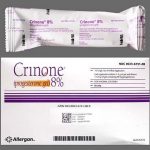
Contents
Types of Female Sexual Problems: A Concise Overview
Female sexual dysfunction encompasses a range of sexual issues in women, falling into five overlapping categories:
1. Low desire
Some women lack interest in sex until engaging in sexual activity. Signs of sexual dysfunction may include:
- No interest in sexual behavior, including masturbation
- Few or no sexual fantasies, ideas, or dreams
- Concern about lack of sex drive
- No desire to initiate sexual intercourse
- Lack of pleasure during sex
2. Lack of arousal
Some women have difficulty becoming physically aroused, despite sexual interest. This could be due to physical or psychological causes, including inadequate vaginal lubrication.
3. Difficulty reaching orgasm
Some women struggle to achieve or have never experienced orgasm during intercourse. Others may find their orgasms less intense than before.
4. Pain during sex
For some women, vaginal intercourse is painful. Causes can include lack of lubrication, cervical erosion, or anxiety.
Certain medications can cause sexual problems. Drugs that may contribute to sexual dysfunction include:
- Anticholinergic medications
- Birth control pills
- Blood pressure medications (such as beta blockers)
- Selective serotonin reuptake inhibitors
- Opioids
- Chemotherapy
- Alcohol
- Marijuana
Factors Contributing to Sexual Dysfunction
Sexual dysfunction stems from a combination of physiological, anatomical, and psychosocial factors. Understanding sexual dysfunction begins with establishing a baseline of anatomic and physiologic responses to sexual stimulation in healthy individuals.
Possible contributors to female sexual dysfunction include:
- Physical conditions (e.g., cancer, kidney failure, multiple sclerosis)
- Hormonal changes (e.g., menopause, childbirth, breastfeeding)
- Psychological factors (e.g., anxiety, depression, sexual abuse history)
Risk factors for female sexual problems include:
- Depression or anxiety
- Heart and blood vessel disease
- Neurological conditions (e.g., spinal cord injury, multiple sclerosis)
- Gynecological conditions (e.g., vulvovaginal atrophy, infections)
- Certain medications (e.g., antidepressants, blood pressure medications)
- Emotional or psychological stress related to the relationship
- History of sexual abuse
Diagnosing Female Sexual Problems
Sexual issues may be identified by individuals or their partners before seeking medical help. Doctors confirm diagnoses by:
- Taking medical history and performing physical examinations
- Evaluating predisposing illnesses or physical conditions
- Exploring fears, anxieties, or guilt associated with sexual behaviors
- Inquiring about a history of sexual trauma
- Conducting pelvic exams for pain assessment
- Testing urine or cervical/vaginal fluid for signs of infection
Treatment Options for Female Sexual Problems
Effective treatment for female sexual problems varies due to diverse symptoms and causes. A comprehensive approach often yields favorable outcomes.
Nonmedical treatment:
- Communication: Openly discussing preferences and providing feedback enhances intimacy.
- Lifestyle habits: Moderate alcohol consumption; engage in regular physical activity and stress-reduction techniques.
- Counseling: Consult a specialist to improve sexual responses and intimacy skills.
- Lubricants: Vaginal lubricants ease dryness or discomfort.
- Devices: Use vibrators or sex toys for increased clitoral stimulation.
Medical treatment:
- Estrogen therapy: Vaginal rings, creams, or tablets increase vaginal blood flow and lubrication.
- Osphena (ospemifene): Eases pain during sex for women experiencing sexual discomfort.
- Androgen therapy: Androgens, including testosterone, may help some women with low levels of sexual dysfunction.
- Addyi (flibanserin): Approved for premenopausal women with low sexual desire; possible side effects include low blood pressure and dizziness.
- Vyleesi (bremelanotide): Another FDA-approved option for low sexual desire in premenopausal women, administered via injection.
Potential treatments under investigation:
Phosphodiesterase inhibitors: More research is needed to determine their effectiveness for female sexual dysfunction.
- Revatio and Viagra (sildenafil): May benefit women taking selective serotonin reuptake inhibitors.
- Herbal supplements: Consult a doctor before using supplements or topical oils claiming to enhance libido and sexual pleasure.


